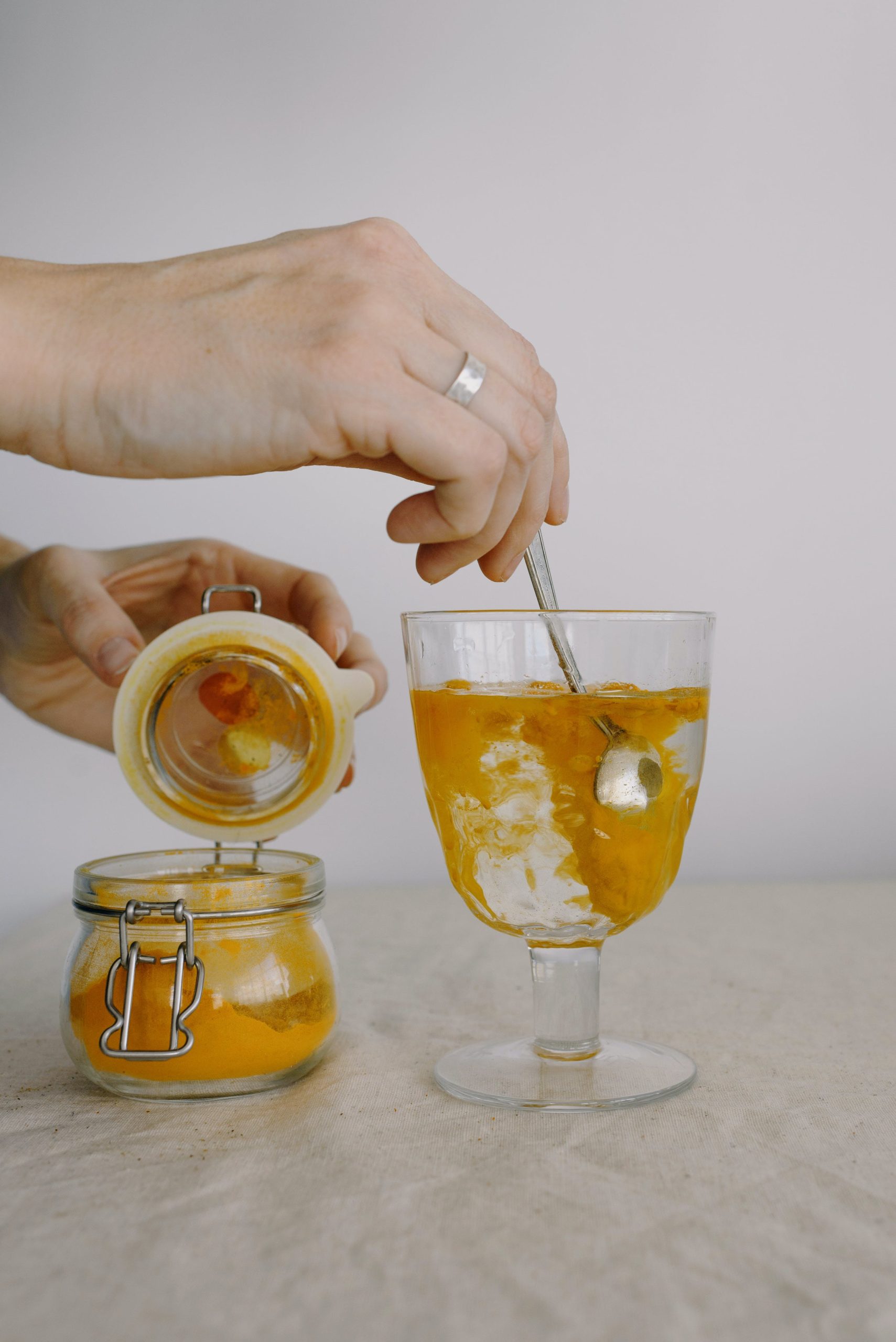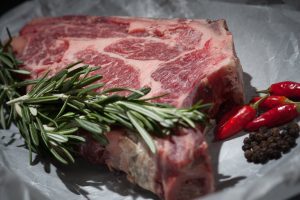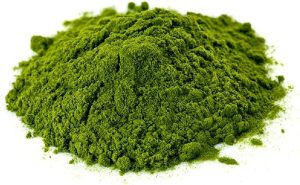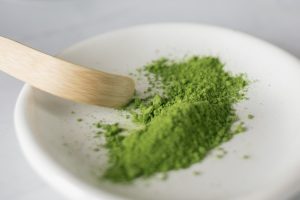
- Overview of Turmeric Extract
- Brief History of Turmeric Extract
- Functions of Turmeric Extract
- Recommended Daily Intake (RDI), Recommended Dietary Allowance (RDA), Adequate Intake (AI), or Reference Nutrient Intake (RNI) for Turmeric Extract
- Deficiency of Turmeric Extract
- Food Sources of Turmeric Extract and Where to Get It From
- Turmeric Extract and Its Interaction with Other Medications
- Websites and Articles to Delve into the Benefits of Turmeric Extract
- Disclaimer
Overview of Turmeric Extract
Turmeric extract, derived from the Curcuma longa plant, is renowned for its potent bioactive compound, curcumin.
Widely recognized for its anti-inflammatory and antioxidant properties, turmeric extract has been used for centuries in traditional medicine. With a vibrant golden hue, curcumin is the primary active ingredient responsible for various health benefits. It may alleviate inflammation, support joint health, and contribute to antioxidant defenses, combating oxidative stress. Additionally, curcumin’s potential in promoting heart health and cognitive function has garnered attention.
Turmeric extract is available in various forms, including supplements and spice blends, making it a versatile addition to diets for both culinary and medicinal purposes. As with any supplement, individuals should consult healthcare professionals, especially if considering therapeutic use or when combining it with medications.
Brief History of Turmeric Extract
Turmeric (Curcuma longa) has a rich history dating back thousands of years, with its origins in Southeast Asia. The use of turmeric extract, particularly its active compound curcumin, spans various cultures and traditional systems of medicine. Here’s a brief historical overview:
- Ancient Ayurvedic Use:
- Turmeric has been a staple in Ayurvedic medicine, the traditional system of medicine in India, for over 4,000 years. Ayurvedic practitioners used turmeric for its anti-inflammatory, antioxidant, and digestive properties.
- Culinary and Ritualistic Use:
- Turmeric has been a key ingredient in the culinary traditions of South Asia, adding flavor and color to a wide range of dishes. It also held cultural significance in rituals and ceremonies.
- Traditional Chinese Medicine:
- Turmeric found its way into Traditional Chinese Medicine, where it was utilized for addressing various health concerns, including pain and inflammation.
- Middle Eastern and African Use:
- Turmeric became a part of Middle Eastern and African cuisines and traditional healing practices.
- Introduction to the West:
- Turmeric started gaining attention in the West in the late 20th century, primarily due to increased interest in natural remedies and traditional medicine.
- Scientific Exploration:
- The isolation of curcumin, the active compound in turmeric responsible for its medicinal properties, sparked scientific interest. Research on curcumin’s anti-inflammatory, antioxidant, and potential therapeutic effects expanded.
- Modern-Day Recognition:
- Turmeric and curcumin supplements gained popularity as natural health remedies, and numerous studies have explored their potential benefits in various health conditions.
Today, turmeric extract and curcumin are widely studied, and their historical use aligns with the growing interest in natural and holistic approaches to health and wellness. Turmeric continues to be a prominent spice, both in traditional cuisines and as a supplement in modern wellness practices.
Here’s a brief history of turmeric extract presented in a table format:
| Time Period | Historical Developments |
|---|---|
| Ancient Ayurvedic Use | – Integral part of Ayurvedic medicine in India for over 4,000 years. |
| – Used for its anti-inflammatory, antioxidant, and digestive properties. | |
| Culinary and Ritualistic Use | – Essential spice in South Asian cuisines, adding flavor and color. |
| – Held cultural significance in rituals and ceremonies. | |
| Traditional Chinese Medicine | – Incorporated into Traditional Chinese Medicine practices. |
| Middle Eastern and African Use | – Adopted in Middle Eastern and African cuisines and traditional healing. |
| Introduction to the West | – Gained attention in the West, particularly in natural health movements. |
| Scientific Exploration | – Isolation of curcumin, the active compound in turmeric, spurred scientific interest. |
| – Research expanded into the anti-inflammatory and antioxidant properties. | |
| Modern-Day Recognition | – Turmeric and curcumin supplements gained popularity. |
| – Ongoing studies explore potential therapeutic effects in various health conditions. |
This table provides a concise overview of the historical developments of turmeric extract, emphasizing its traditional uses, culinary significance, and increasing recognition in modern times.
Functions of Turmeric Extract
Turmeric extract, containing the active compound curcumin, offers a range of potential health benefits due to its anti-inflammatory, antioxidant, and antimicrobial properties. Here are the key functions and potential roles of turmeric extract:
- Anti-Inflammatory Effects:
- Function: Curcumin is a potent anti-inflammatory agent, helping to reduce inflammation at the molecular level. It may benefit conditions related to chronic inflammation, such as arthritis.
- Antioxidant Properties:
- Function: Curcumin acts as an antioxidant, neutralizing free radicals and reducing oxidative stress. This function may contribute to overall cellular health and combat aging processes.
- Joint Health Support:
- Function: Turmeric extract may support joint health by alleviating inflammation and potentially reducing symptoms of conditions like osteoarthritis.
- Digestive Health:
- Function: Turmeric may stimulate bile production, aiding in digestion. It is also known for its potential to relieve symptoms of indigestion and promote a healthy digestive system.
- Heart Health:
- Function: Curcumin may have cardiovascular benefits by improving the function of the endothelium (the lining of blood vessels), reducing inflammation, and supporting overall heart health.
- Cognitive Function:
- Function: Some studies suggest that curcumin may cross the blood-brain barrier and have neuroprotective effects, potentially supporting cognitive function and reducing the risk of neurodegenerative diseases.
- Antimicrobial Properties:
- Function: Turmeric has demonstrated antimicrobial properties, inhibiting the growth of bacteria and fungi. This may contribute to its traditional use in wound healing.
- Skin Health:
- Function: Topical application of turmeric extract may benefit skin health, potentially reducing inflammation and promoting wound healing.
- Anti-Cancer Potential:
- Function: While research is ongoing, some studies suggest that curcumin may have anti-cancer properties by inhibiting the growth of cancer cells and preventing the spread of tumors.
- Metabolic Support:
- Function: Turmeric extract may have a role in metabolic health, including potential benefits for weight management and insulin sensitivity.
Considerations:
- Bioavailability: The bioavailability of curcumin is relatively low, and formulations with enhanced absorption may be beneficial.
- Dosage: Appropriate dosages may vary, and consulting with a healthcare professional is advisable.
- Combination with Piperine: Consuming turmeric with black pepper (containing piperine) may enhance the absorption of curcumin.
While turmeric extract offers promising health benefits, individual responses can vary. It’s recommended to consult with healthcare professionals, especially if considering therapeutic use or when combining it with medications.
Recommended Daily Intake (RDI), Recommended Dietary Allowance (RDA), Adequate Intake (AI), or Reference Nutrient Intake (RNI) for Turmeric Extract
We have no established Recommended Daily Intake (RDI), Recommended Dietary Allowance (RDA), Adequate Intake (AI), or Reference Nutrient Intake (RNI) specifically for turmeric extract or its active compound, curcumin. Turmeric is often consumed as a spice in culinary practices, and while it has a long history of traditional use, specific nutrient reference values for its extract or curcumin are not universally defined.
The beneficial effects of turmeric extract are more associated with its bioactive compounds, particularly curcumin, rather than meeting specific nutrient requirements. As such, there’s no standardized dosage applicable to everyone.
If you’re considering the use of turmeric extract or curcumin supplements for therapeutic purposes, it’s advisable to consult with a healthcare professional. Individual needs can vary, and healthcare providers can offer guidance based on your health status, existing conditions, and potential interactions with medications.
Please note that information may have evolved since my last update, so it’s a good idea to check with authoritative sources or healthcare professionals for the most current information on dietary supplements.
Deficiency of Turmeric Extract
Turmeric extract, specifically curcumin, is not considered an essential nutrient, and therefore, the concept of a deficiency does not apply. Essential nutrients are substances that the body cannot produce in sufficient quantities, and their absence leads to deficiencies. Turmeric extract is often used for its potential health benefits, but it is not classified as an essential nutrient.
However, it’s important to note that if someone is using turmeric extract for its therapeutic properties and discontinues its use or does not consume it regularly, they may not experience the potential health benefits associated with curcumin, such as anti-inflammatory and antioxidant effects.
While turmeric extract is generally safe for most people when consumed as part of the diet or as a supplement, it’s advisable to consult with a healthcare professional, especially if using it for specific health concerns or if there are potential interactions with medications. Individual responses to turmeric extract can vary, and it may not be suitable for everyone, particularly those with certain medical conditions or taking specific medications.
Food Sources of Turmeric Extract and Where to Get It From
Turmeric extract is derived from the rhizomes of the turmeric plant (Curcuma longa). While the extract itself is not commonly consumed as a food, the powdered form of turmeric, which contains the active compound curcumin, is widely used in culinary practices. Here are food sources of turmeric (containing curcumin) and where to obtain them:
- Fresh Turmeric Rhizomes:
- Where to Get It: Fresh turmeric is available in some grocery stores, especially those with a diverse selection of produce. Ethnic or specialty markets may also carry it.
- Ground Turmeric Powder:
- Where to Get It: Ground turmeric is a staple spice found in most grocery stores and supermarkets. It is commonly available in the spice section.
- Turmeric Supplements:
- Where to Get It: Turmeric supplements, often in the form of capsules or tablets containing curcumin, are available in health food stores, pharmacies, and online. Look for reputable brands with standardized curcumin content.
- Turmeric Tea:
- Where to Get It: Turmeric tea blends are available in tea sections of grocery stores, health food stores, or specialty tea shops. Some people also prepare turmeric tea at home using ground turmeric.
- Golden Milk or Turmeric Lattes:
- Where to Get It: Some coffee shops and cafes offer golden milk or turmeric lattes. You can also make them at home using turmeric powder, milk (or a plant-based alternative), and other spices.
- Curry Dishes:
- Where to Get It: Turmeric is a key ingredient in many curry dishes. Indian, Thai, and other South Asian restaurants serve a variety of curries that incorporate turmeric.
Tips for Purchase:
- Quality: Choose high-quality turmeric powder or supplements from reputable brands to ensure purity and potency.
- Freshness: When buying fresh turmeric rhizomes, look for firm and plump rhizomes with smooth skin.
Incorporating turmeric into your diet can be done through various dishes, including curries, soups, stews, smoothies, and teas. Be mindful of the quantity used, as excessive intake may cause digestive discomfort in some individuals. If you have specific health concerns or are considering using turmeric for therapeutic purposes, it’s advisable to consult with a healthcare professional.
Turmeric Extract and Its Interaction with Other Medications
Turmeric extract, specifically its active compound curcumin, may interact with certain medications. It’s essential to be aware of potential interactions to avoid adverse effects. Here are some considerations:
- Blood-Thinning Medications:
- Interaction: Turmeric extract may have mild anticoagulant properties and may enhance the effects of blood-thinning medications, increasing the risk of bleeding.
- Caution: Individuals on anticoagulant or antiplatelet medications (e.g., warfarin, aspirin) should consult with their healthcare provider before using turmeric extract.
- Antiplatelet Medications:
- Interaction: Turmeric extract may have antiplatelet effects, similar to aspirin, which could increase the risk of bleeding when combined with antiplatelet medications.
- Caution: Individuals taking antiplatelet drugs (e.g., clopidogrel) should consult with their healthcare provider.
- Anti-Inflammatory Medications:
- Interaction: Turmeric extract has anti-inflammatory properties. Combining it with anti-inflammatory medications may increase the risk of side effects.
- Caution: Individuals on medications like NSAIDs should consult with their healthcare provider.
- Antidiabetic Medications:
- Interaction: Turmeric extract may lower blood sugar levels, potentially enhancing the effects of antidiabetic medications.
- Caution: Individuals with diabetes should monitor blood sugar levels closely and consult with their healthcare provider.
- Gastrointestinal Medications:
- Interaction: Turmeric extract may increase stomach acid production. Combined with acid-reducing medications, it could affect their efficacy.
- Caution: Individuals on medications for acid reflux or ulcers should consult with their healthcare provider.
- Iron Absorption:
- Interaction: Turmeric may inhibit non-heme iron absorption. This could be a concern for individuals with iron-deficiency anemia.
- Caution: Iron supplements or iron-rich foods should be taken at a different time than turmeric-containing meals.
- Bile Flow Stimulants:
- Interaction: Turmeric may stimulate bile production. Combined with medications that affect bile flow, it could have additive effects.
- Caution: Individuals on medications affecting bile flow should consult with their healthcare provider.
General Tips:
- Consultation: Always consult with a healthcare professional before using turmeric extract, especially if you are on medications.
- Monitoring: Regular monitoring of relevant health parameters may be advisable.
Individual responses to interactions can vary, so it’s crucial to communicate openly with healthcare providers about all supplements and medications being used. Healthcare professionals can provide personalized advice based on an individual’s health status and specific needs.
Websites and Articles to Delve into the Benefits of Turmeric Extract
When researching the benefits of turmeric extract, it’s important to refer to reputable sources that provide evidence-based information. Here are some websites and articles where you can delve into the potential benefits of turmeric extract:
- National Center for Biotechnology Information (NCBI):
- Website: NCBI
- Search Term: Use the search function to find research articles on turmeric extract, curcumin, and their health benefits.
- PubMed:
- Website: PubMed
- Search Term: Look for articles related to “turmeric extract benefits” or specific health conditions you are interested in.
- Examine.com:
- Website: Examine.com – Curcumin
- Content: Examine.com provides evidence-based information on curcumin, the active compound in turmeric, including its potential benefits.
- Mayo Clinic:
- Website: Mayo Clinic – Turmeric
- Content: Mayo Clinic offers a comprehensive overview of turmeric, its uses, and potential benefits.
- WebMD:
- Website: WebMD – Turmeric
- Content: WebMD provides information on the uses, benefits, and potential side effects of turmeric.
- Healthline:
- Website: Healthline – Turmeric: Benefits, Side Effects, Dosage, and Interactions
- Content: Healthline offers an evidence-based overview of the health benefits of turmeric, including references to scientific studies.
- University of Maryland Medical Center:
- Website: UMMC – Turmeric
- Content: The University of Maryland Medical Center provides information on turmeric, its uses,
Disclaimer
The information is solely provided for educational purposes. It is not intended to diagnose, treat, cure, or prevent any disease. Seek the advice of your physician or qualified healthcare provider with any questions you may have regarding a medical condition at all times. Never disregard professional medical advice because of something you have read or learned from this article.






